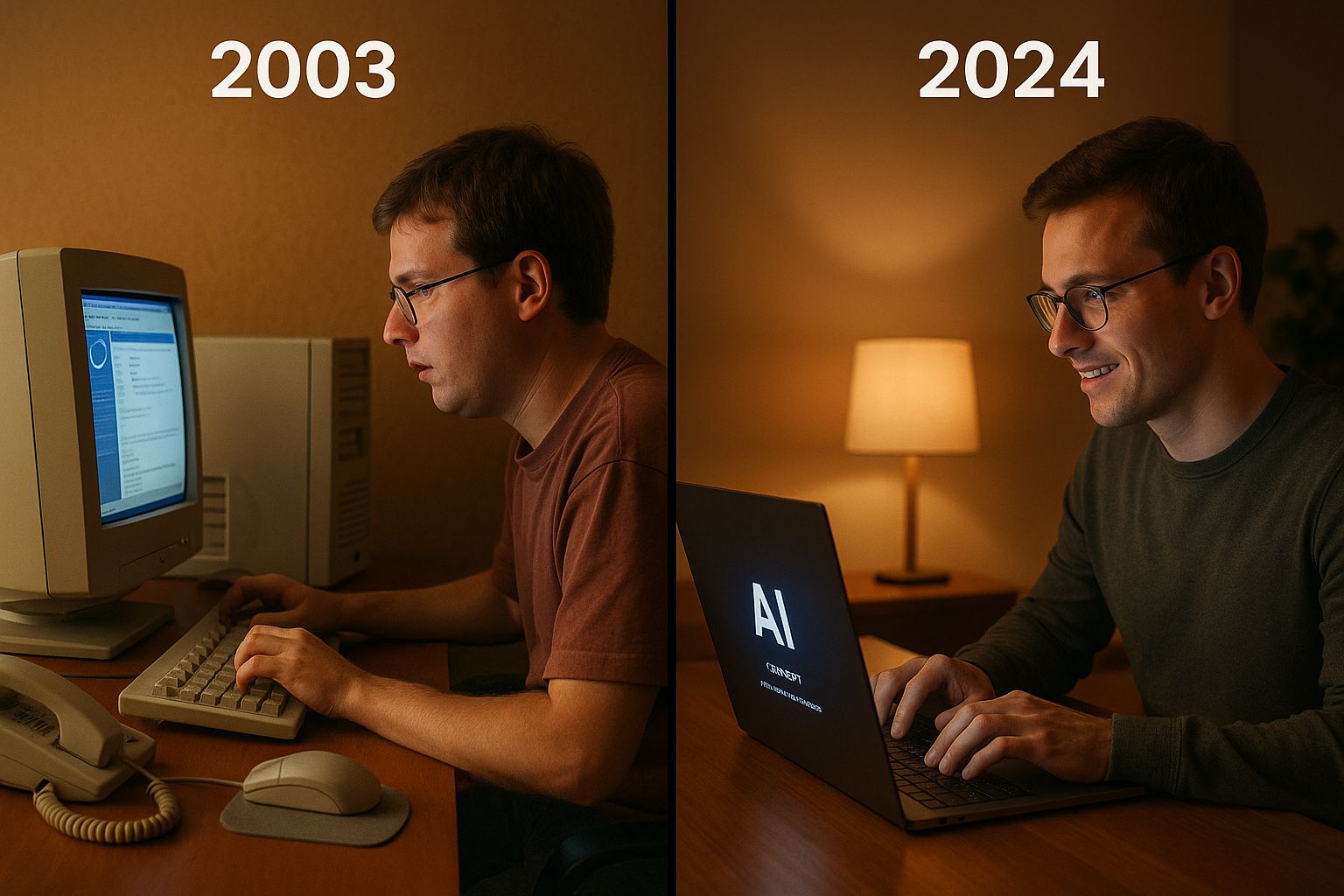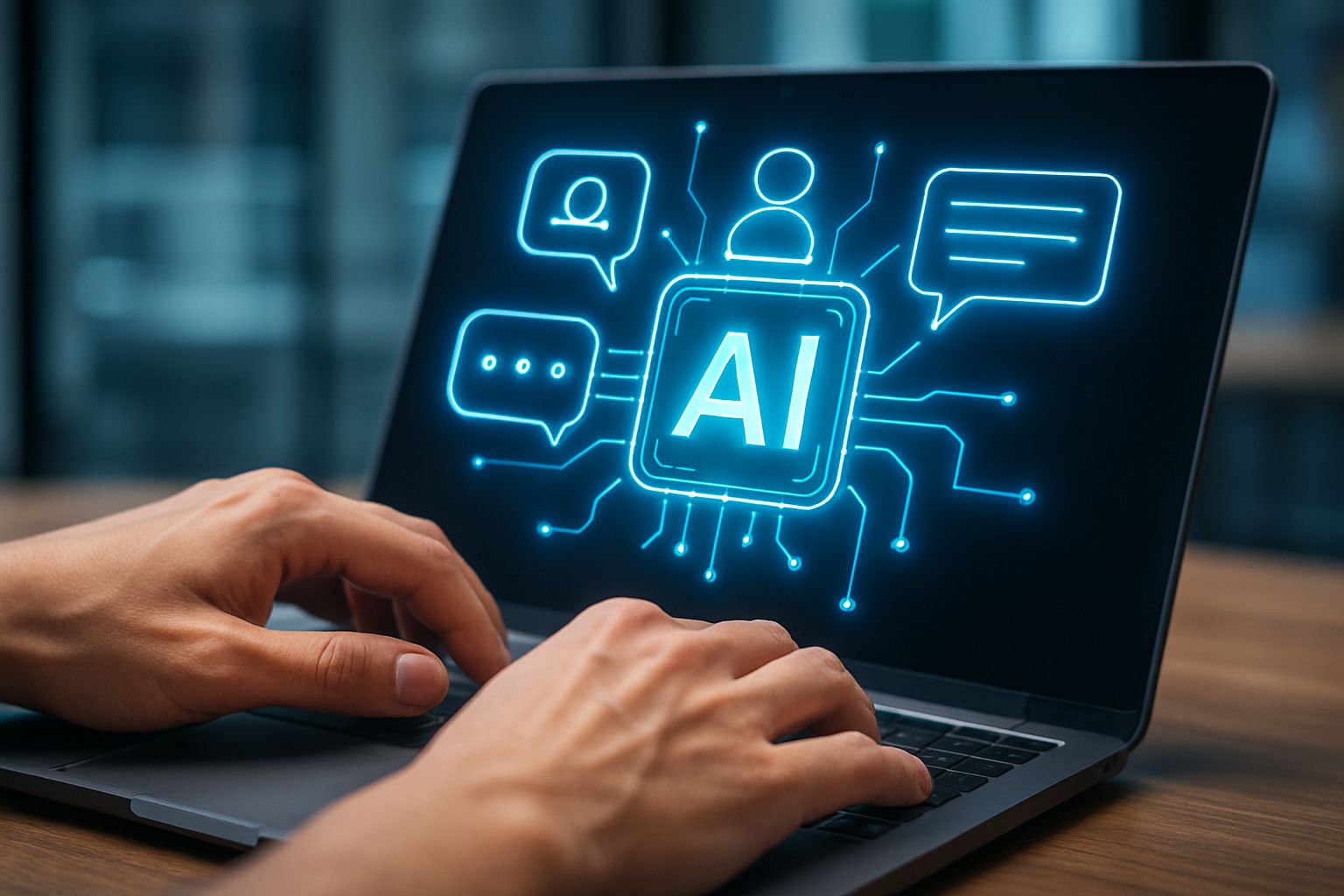- AI for Everyone
- Posts
- Why Learning AI Now Is Like Learning Google in 2003
Why Learning AI Now Is Like Learning Google in 2003
The Early Adopter's Advantage in the Age of Artificial Intelligence

Remember when your tech-savvy friend first showed you Google back in 2003, and you thought, "Why would I need this when I have Yahoo directories?" Fast-forward twenty years, and that same friend probably retired early from their Google stock options while you're still wondering where the time went. Here's the thing: we're standing at that exact same moment with AI tools today. The people learning ChatGPT, Claude, and other AI assistants right now aren't just picking up a new skill—they're positioning themselves at the front of the next great technological wave. And unlike the Google era, you don't need a computer science degree or venture capital connections to ride this one.
🤖 What ChatGPT Actually Is (And Why Everyone's Talking About It)
Let's cut through the hype and explain what ChatGPT actually does in terms your grandmother would understand. Think of ChatGPT as having a conversation with the world's most patient research assistant who's read nearly everything on the internet and never gets tired of your questions. You type in what you want to know or what you need help with, and it responds in natural language—just like texting a really smart friend.
But here's where it gets interesting: ChatGPT doesn't just answer questions. It can write emails, create presentations, debug your thinking, brainstorm solutions, and even help you learn new skills by breaking down complex topics into digestible chunks. The magic happens in the conversation. Unlike Google, where you search and sift through results, ChatGPT engages with your specific situation and adapts its responses based on your follow-up questions.
The key difference? Google finds information; ChatGPT helps you work with that information. It's the difference between having access to a library and having a librarian who knows exactly which books you need and can summarize the relevant chapters for your specific project.

⚡ Tool of the Week: Perplexity AI
What it is: Perplexity AI combines the conversational ease of ChatGPT with the real-time accuracy of Google search. Think of it as ChatGPT's fact-checking cousin who always cites their sources.
Why it's helpful: While ChatGPT sometimes makes confident-sounding mistakes, Perplexity searches the web in real-time and shows you exactly where its information comes from. It's perfect for research, current events, or any time you need information you can actually trust.
How to use it:
Go to perplexity.ai and sign up for a free account
Ask any question just like you would in ChatGPT
Notice how it provides sources at the bottom of each response
Click on the sources to verify information
Use the "Focus" feature to search specific sites (like academic papers or news sources)
Pro tip: Start your questions with "What are the latest developments in..." or "According to recent research..." to get the most current information.
Link to try it: perplexity.ai
🌟 Real-World Use Case: The Small Business Owner's AI Breakthrough
Sarah runs a boutique marketing agency and was drowning in client proposals. Each custom proposal took her 3-4 hours to write, and she was losing potential clients to faster competitors. Then she discovered ChatGPT.
Now, Sarah uses this simple process: She feeds ChatGPT her client's basic information and her standard service offerings, then asks it to create a first draft proposal. What used to take 4 hours now takes 45 minutes—30 minutes for ChatGPT to generate the draft, and 15 minutes for Sarah to customize and polish it with her personal touch.
The result? Sarah's response time improved from days to hours, her proposal quality became more consistent, and she's landing 40% more clients. She's not replacing her expertise; she's amplifying it. The AI handles the routine structure and research, while Sarah focuses on strategy and relationship-building.
The best part? Sarah learned this entire process in one weekend by watching YouTube tutorials and experimenting with different prompts.
💡 Three Things to Try with AI Today
Draft your next email: Before writing your next important email, try asking ChatGPT to "write a professional email to [recipient] about [topic] with a [tone] tone." Then edit it to match your voice. You'll be amazed how much mental energy this saves.
Plan your week: Ask AI to help you prioritize your to-do list. Share your tasks and deadlines, and ask it to suggest an optimal schedule. It's like having a personal productivity consultant who doesn't charge by the hour.
Learn something new: Pick a topic you've always wanted to understand better and ask ChatGPT to "explain [topic] like I'm a smart beginner." Then keep asking follow-up questions. It's the most patient teacher you'll ever have.
🚀 Your Turn: The 15-Minute AI Challenge
Here's your mission: Pick one routine task that you do every week—maybe it's writing social media posts, planning meals, or organizing your schedule. Spend 15 minutes asking ChatGPT to help you with it. Don't worry about getting it perfect; just experiment and see what happens.
The goal isn't to let AI do everything for you. It's to discover where AI can handle the heavy lifting so you can focus on the parts that actually require your human judgment and creativity. Share your results on social media with #AIfor15—I'd love to see what you discover.
❓ Ask Me Anything: "But What If AI Takes My Job?"
This week's question comes from a reader who asked: "I'm worried that if I learn AI, I'm just training my replacement. Won't these tools eventually make my job obsolete?"
Here's the honest truth: AI won't take your job, but someone who knows how to use AI effectively might. The goal isn't to compete with AI—it's to collaborate with it. Think of AI as a power tool, not a replacement worker. A carpenter didn't become obsolete when power drills were invented; they became more efficient.
The professionals thriving right now are those who use AI to handle routine tasks while focusing their human skills on strategy, creativity, and relationship-building. They're not being replaced; they're being upgraded.
The real risk isn't learning AI—it's ignoring it while your competitors gain a two-year head start.